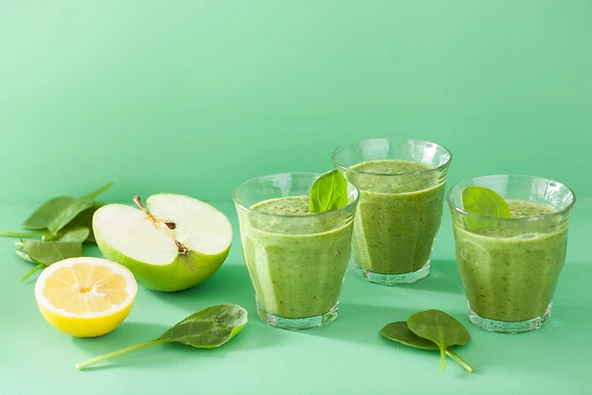The truth is, we can’t avoid all stress in life. We can reduce stress by establishing boundaries around stress-inducing areas of our lives, whether that be work, social engagements, family conflicts. But we always encounter some kind of acute stress in daily life. Learning to manage stress and keep baseline levels low is extremely important for physical and mental well being – even more so during pregnancy.
Stress during pregnancy plays a critical role in determining the health of your future baby. And with a mother’s stress levels during pregnancy estimated to affect between 10-35% of children worldwide, this can contribute to compromised brain development, psychiatric conditions, addiction, depression, mood disorders and other health conditions (Graham et. al, 2018). So it’s a pretty important factor to consider throughout pregnancy!
Recent studies have also found a mother’s stress during pregnancy is associated with the brain development of her unborn child – particularly the function of the child’s amygdala (Stoye et. al, 2020). The amygdala is the area of the brain largely responsible for social development and regulation (Stoye et. al, 2020).
This was largely determined by the production of cortisol, a hormone produced in response to stress. Higher production of cortisol during pregnancy compromised the development of this area of the brain, and its connectivity to other areas of the brain such as the putamen, an area largely responsible for the movement and coordination of your body and limbs (Stoye et. al, 2020).
Interestingly, the impact of stress on the unborn baby differs between female and male foetuses. The study found male babies experienced changes to the actual structure of their amygdala when exposed to high levels of stress and the stress hormone cortisol, in their mother during pregnancy (Stoye et. al, 2020). These same structural changes did not occur in female babies.
While boys experienced changes to the structure of the amygdala, girls instead experienced changes in the way their amygdala connected to other pathways in their brains (Stoye et. al, 2020).
Girls were able to form greater connections between their amygdala and putamen than boys when exposed to the same higher levels of maternal cortisol during pregnancy (Stoye et. al, 2020). This means their emotional regulation and social abilities are less reliant on their mother maintaining low stress levels in pregnancy.
Despite these differences, which are potentially explained by differences between each sex in how they release certain hormones (like CRH), both females and males were found to benefit from lower levels of maternal stress throughout pregnancy (Stoye et. al, 2020).
But before you stress about being stressed, it’s important to note the study was fairly small (102 people) and more research is needed to confirm these findings (Stoye et. al, 2020). Though the findings do hint at the importance of a mother’s health in influencing not only the physical health outcomes of her unborn children, but also the emotional and psychiatric health outcomes (Stoye et. al, 2020)!
Anxious or depressive behaviours
Another study that looked at the effects of stress on an unborn baby found higher exposure to cortisol during development put female babies at greater risk of anxious or depressive behaviours around the age of 2 (Graham et. al, 2018). Their stronger links between areas of the brain developed during pregnancy led them to be more likely to internalise emotions, and changed their sensory and emotional processing ability (Graham et. al, 2018).
We know that mood and anxiety disorders are almost twice as common in females as they are males (Graham et. al, 2018), and this could be a significant contributing factor. It appears that the pregnancy experience and stress levels of the mother may play an important role in influencing the mental health outcomes and social relationships of her child.
So we’re back to square one: stress has a negative impact on both male and female unborn babies, just in different ways! So mums, consider this your permission to sit back, put your feet up, and relax as you wait for your baby to arrive! You’re welcome!
How can you reduce stress during pregnancy?
Of course, there are diets that can help reduce inflammation in the body, such as the Mediterranean diet, making this a good solution for reducing stress on your body.
Equally, lifestyle factors like gentle exercise (within the confines of what your healthcare professionals have advised you is okay for your body depending on your stage of pregnancy) can reduce stress levels during pregnancy.
Given what we know about the close relationship between the health of our gut, and our mood or stress levels, it’s no surprise our gut-brain axis could assist in managing stress in pregnancy. There’s evidence suggesting the gut-brain axis is a prominent way to reduce stress during pregnancy, with emerging research suggesting probiotics used before, during and after pregnancy can assist with emotional balance and mood regulation in expecting mothers (Browne et. al, 2019). Probiotics were found to reduce symptoms of anxiety or depression, and lower maternal stress and cortisol levels, by restoring the balance of bacteria in the mother’s gut (Browne et. al, 2019).
However, so much advice when you’re trying to conceive or pregnant becomes about what you “should” be doing. What you “should” and “shouldn’t” eat, how you should exercise, what you should avoid. This constant pressure can be a huge contributor to stress levels during pregnancy! Kind of counterproductive, right!
So pause and check in: if maintaining a certain diet or lifestyle choice is causing more stress than it’s alleviating, maybe it’s time to consider whether it’s worth it, and is giving any benefits at all!
If your diet is creating more stress due to the pressure of sticking to and avoiding certain foods, it’s time to rethink things!
This is where we come in! As fertility and prenatal dietitians, the team at The Dietologist can provide evidence-based nutrition and dietary strategies to help support you when you’re trying to conceive or pregnant. We’ll guide you through the journey, giving you the tools to eat well and nourish yourself and your unborn baby, without the stress or anxiety!
The truth is, anxiety is generally heightened in pregnancy, with 1 in 5 pregnant women experiencing antenatal anxiety or depression (PANDA, 2021). To manage this extra stress, it’s important to seek the advice and support of healthcare professionals who can provide a combination of psychological and emotional support and physical health-based lifestyle strategies. Remember, you’re not alone – it’s a very common experience, so make sure you reach out for professional mental health support help whenever you need it, speak with your doctor or psychologist.
If you need extra support with stress, anxiety, or other mental illness, check out the following resources. Never be afraid to ask for help and support!







